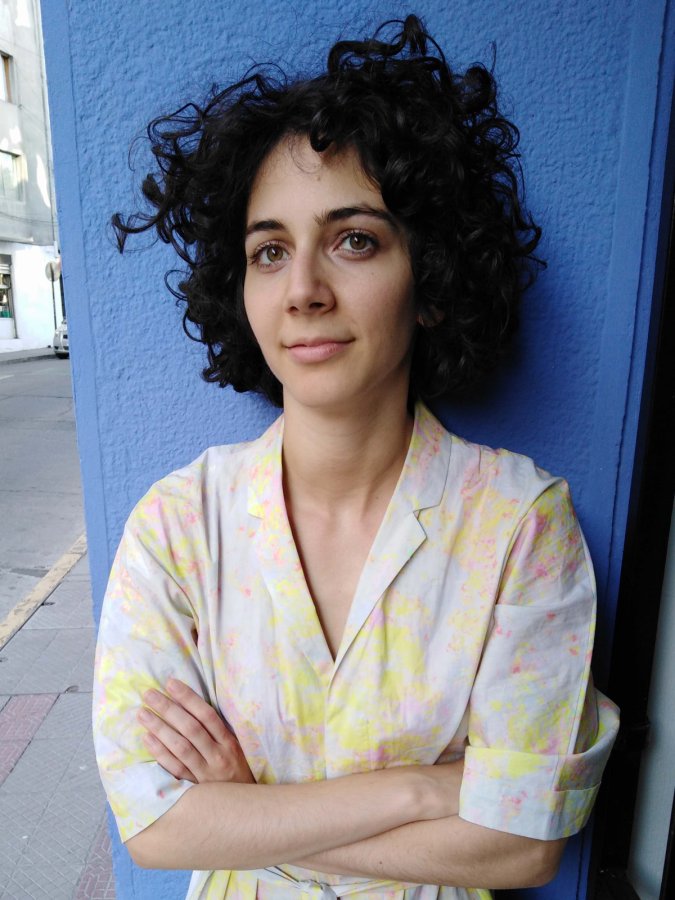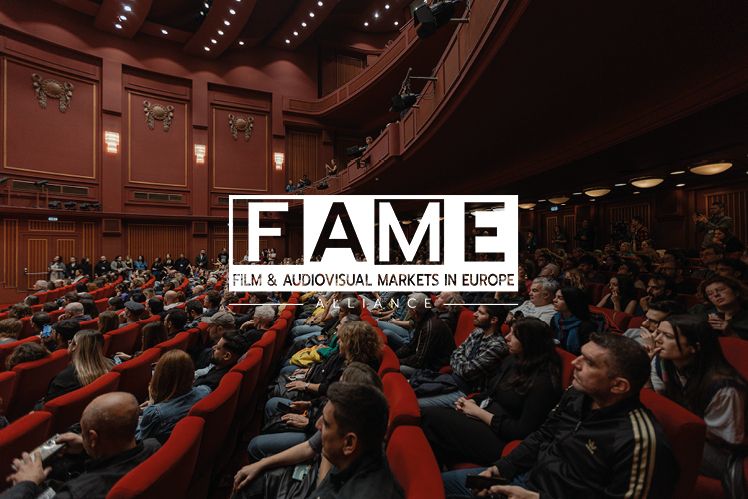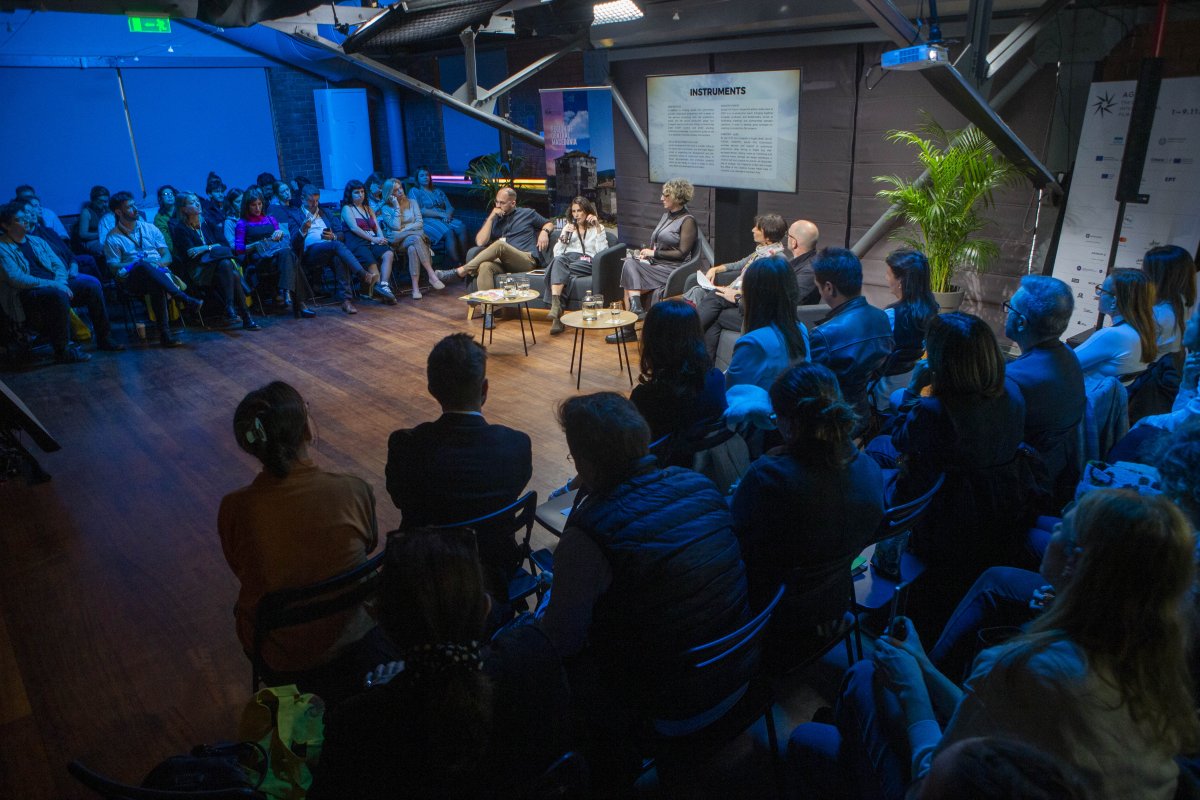19th Thessaloniki Documentary Festival
3-12 March 2017
PRESS CONFERENCE
VITALY MANSKY
3-12 March 2017
PRESS CONFERENCE
VITALY MANSKY
“Everything that touches and inspires me, I want to incorporate in my films”
V. Mansky
The Russian director Vitaly Mansky, the guest of honour of the 19th Thessaloniki Documentary Festival, attended a press conference on Monday, March 6th 2017, at the Cafe of the Thessaloniki Museum of Photography, speaking about his documentaries, life, but also about what it means to be a filmmaker today.
Welcoming the filmmaker, whose work is presented in a tribute in this year's edition, the director of the TDF Orestis Andreadakis noted: "The presence of Vitaly Mansky is both an honour and a big success for the Thessaloniki Documentary Festival, and the public’s attendance in his films’ screenings is great. From the bottom of our heart, we thank him". Director, producer and founder of the Artdocfest Festival, Mansky is a multifaceted artist. As noted by TDF’s Head of Programming Dimitris Kerkinos, who moderated the discussion, Mansky documents the political and social developments in Russia, while he does not fail to go back to the years of the Soviet Union to reflect on his youth and narrate everything that has marked his generation.
Talking about his relationship with the audience, the director pointed out that "I want every viewer who watches my films to see his/hers own life. I don’t like to impose my views on people. I myself watch my works as a spectator and wonder about my life”. As for the meaning of homeland which plays an important role in his films, he stressed: "For me the word ‘homeland’ has a very important role and opens new paths for my next films”.
Regarding the condition of the Russian documentary today, Mansky reported that it has been affected by the social situation itself: "The atmosphere in the Russian society is ba, however, paradoxically, the worse life gets, the better film works become. As director of the Artdocfest, I see more than 90 films produced in Russia every year. Most directors look for ways to survive in a society in which there is widespread censorship on issues about freedom, and therefore they try to be part of the system. In the Soviet era filmmakers made poetic works to survive in a country with a lack of freedom. If they wanted to win prizes, they had to do everything that was asked by the party. The same is done today with the painful issue of Chechnya. There are no films that deal with this issue and what’s awful is that the projects which are created have the Kremlin's hand and power”.
Mansky’s documentaries about Cuba and North Korea have a special place in his filmography. During the shooting of his film Under the Sun (2015), which was controlled by the North Korean authorities, the director and his team experienced many adventures: “This is a film that was presented in numerous festivals and was distributed worldwide. In Russia, however, the film received four rejection letters by the Russian Federation regarding its screening in the theatres, as the Federation wanted to support North Korea. When they finally agreed, again in several areas the screening was banned. The country's ministry of culture does not support our festival. To have a film screening, certification is required. We were obliged to pay fines because we wanted to show simple student films that don’t cause any harm to anyone. The same happened with the film about North Korea”.
Filming in North Korea was difficult. According to Mr Mansky, "when we arrived at the airport they took our passports and we couldn’t get out of the hotel without them. The shooting took place where the North Koreans wanted and not where we wanted. The words of all government officials should always be in the foreground. You cannot shoot a lot of things, for example you cannot take shots of anything that is dirty in public places. We nevertheless shot the material we wanted, but then we had to carry it constantly with us in a backpack. When I went back, I had bruises everywhere on my back from the weight I had to carry. They even checked on us when going to the toilet. It was terrible what we went through for two months”.
Vitaly Mansky doesn’t believe in script, but is a fan of realistic cinema: "The screenplay for me is the dot that introduces me to the story. Later on, I give myself to this story and sail in it without changing stream. In 2004 I wanted to shoot a film about my classmates, who I hadn’t seen for more than 25 years. I got support from various institutions and organizations to fulfil my project, but they wanted me to show them the initial script so they would know what it is about. I told them that the film is the research, the quest for my classmates. Somehow I convinced them and they trusted me. That’s what realistic cinema is for; when the director lives with his heroes. It is life itself. In the intensely personal film Close Relations (2016) I wanted to be close to my family. In Crimea we experienced unforeseen events that no one knew where they would lead. I got myself in the film. Films die when they move on according to script and not according to life”.
Where does he get his inspiration from? About Broadway, Black Sea (2002) he noted the following: "In 2000 I walked on a beach. I stopped at a cafe and there was a blonde girl dancing in a very erotic way. She was probably drunk. An Armenian family, a father and two sons were staring at her. At that moment I realized I wanted to do a film about this. I dreamed of that scene for two years, as in that cafe I had found people who gave me inspiration. I finally made the film and even took such wonderful shots that I didn’t use them all and donated part of them to a colleague of mine who made a film even better than mine. Everything that touches and inspires me, I want to incorporate in my cinema, my documentaries”.
Answering the question about whether there is something that unites the countries of former Soviet Union, Mansky said: "We are all born and die. Everyone lives their life. Take a funeral for example. In Russia, relatives have to walk a long way in the cold and dig the hard soil to bury their loved ones. Elsewhere, people dress nicely and simply attend the event. The expression of grief is different. They are different worlds. The world can’t be the same. I wouldn’t like countries to look like airport buildings, where you don’t know which country you’re actually in”.
He doesn’t believe that art is a weapon in the hands of the artist: "If art was a weapon, it would be propaganda. As an artist I think that people must constantly strive to become better”. As for Russia, he stressed: “Kusturica says Putin is a good president, but only for Russia. Ever since we are little we are told we should die for our country. Why can’t we live for our country? I’ve always felt I’m a Russian director and I’ve always known what inspires me. Now I live with my wife in Latvia and a lot is written about me. I seek places to live that inspire me. But I’ll always feel I’m a Russian director”.















